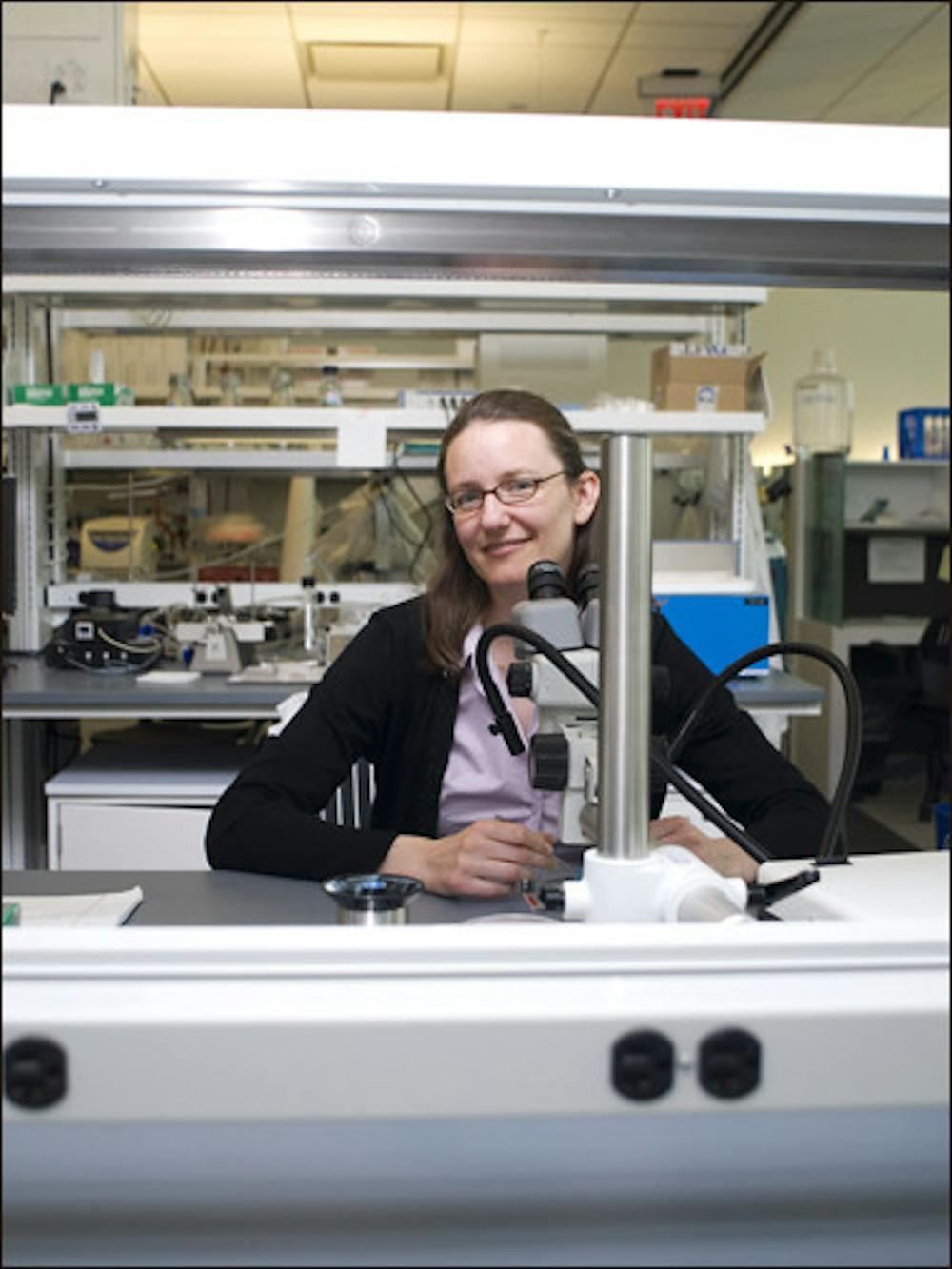Hypertension, or high blood pressure, is proven to lead to sexual dysfunction and eventually cardiovascular disease, according to research from a Downtown campus professor.
Taben Hale, who started research on sexual dysfunction and cardiovascular disease in 1999, is an assistant professor at the UA College of Medicine on ASU’s Downtown campus.
Hale said she found that sexual and erectile dysfunction can predict later problems with cardiovascular disease, a result of high blood pressure.
“[Sexual dysfunction] could be a warning sign that there are progressive changes happening throughout the cardiovascular system,” Hale said.
Hale added that cardiovascular problems can be foreseen by observing the blood vessels in the erectile tissue, as the blood vessels that supply the penis are smaller, and the impact of disease can be seen sooner than for vessels in the rest of the body.
“What is nice about the study of penile vasculature is that the functional response [of erection] is so closely linked to the health of the blood vessels,” Hale said.
For those with high blood pressure, the walls of the smaller blood vessels in the penis can thicken and restrict the blood flow, which causes the inability to have an erection.
Studies show that more than 50 percent of men ages 40 to 70 suffer from erectile dysfunction, Hale said.
Although sexual problems generally occur in older men and women, it is “important for research to investigate the cause and ways to slow down the progression” to prevent problems from happening later on, Hale said.
In college students, the causes of sexual dysfunction vary, said Denise Link, the associate dean for clinical practice and community partnerships at the College of Nursing and Healthcare Innovation.
“There are a number of factors that can contribute to the development of the problem — some of them psychosocial, some of them physical,” Link said in an e-mail.
Those dissatisfied with their sexual function can see health professionals or psychologists, Link added.
Although the majority of sexual dysfunction research has been done with males, female sexual dysfunction is also an issue, Hale said.
Michael Adams, a professor in the pharmacology and toxicology department at Queen’s University in Kingston, Ontario, works with Hale on her studies in sexual dysfunction and cardiovascular disease.
Adams said he started working with Hale about 10 years ago, when she was a doctoral student.
“Normally [cardiovascular disease researchers] ignore sexual medicine,” Adams said.
Adams said he focuses on cardiovascular research involving chronic kidney disease, blood vessels, obesity and complications of maternal iron deficiency, which all apply to sexual dysfunction as well.
The problem with cardiovascular complications is that many health professionals never ask about sexual dysfunction, which could raise a red flag for cardiovascular problems in the first place, Adams said.
“Why not use the erectile or sexual dysfunction as a biomarker?” Adams said.
Biomarkers are bodily functions, like sexual responses, that can determine how healthy the body is, Adams said.
“When you start to see difficulties in the erectile functions, there is an underlying problem with your cardiovascular system,” Adams said.
Adams and Hale are still working on helping men and women with their sexual dysfunction problems.
In a study on how obesity affects sexual dysfunction, Adams said that “the more obese you are, the more susceptible you are to all these diseases.”
To avoid future problems, Adams said more exercise is needed, especially starting at a younger age, since obese children under 10 will be at a higher risk for cardiovascular disease and sexual dysfunction throughout their lives.
“Get into a routine of exercise that you can sustain your whole life,” Adams said.
Reach the reporter at reweaver@asu.edu.




